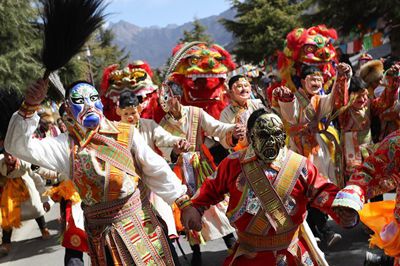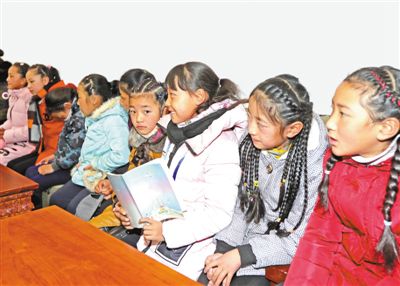|
5. Are the "Simla Conference" and "Simla Convention" legal?
A: The so-called "Simla Conference" and "Simla Convention" were devised by Britain in the early 20th century with the aim of separating Tibet from China. The Chinese government has never recognized the "Simla Convention," so it is null and void.
In 1913, the British government, taking advantage of the fact that Yuan Shikai, having seized the presidency of the Republic of China, was eager to win diplomatic recognition and to obtain international loans, forced the Yuan Shikai administration to participate in the tripartite "Simla Conference." Prior to this conference, the British government had sent its representatives to meet with those of the local government of Tibet, and incite them towards "Tibet independence," and to obstruct entry into Tibet of the commissioner sent by the central government.
Instigated by Britain, the representative of the local government of Tibet put forward for the first time the "Tibet independence" slogan, and demanded partition of the Tibetan areas in Qinghai and Sichuan, which did not come under the jurisdiction of Tibet, from China. These preposterous demands were rejected immediately by the representative of Chinese central government. The British representative then, according to a premeditated strategy, suggested a "compromise solution," dividing the areas inhabited by Tibetans into "Inner Tibet" and "Outer Tibet." Outer Tibet" included Tibet and some of the Tibetan areas of Sichuan, The British representative subsequently demanded the Chinese government to "recognize the autonomy of Outer Tibet" and "not interfere with its internal affairs." In essence, it changed the Chinese sovereignty over Tibet to so-called "suzerainty," thereby, in the name of "autonomy," separating Tibet from China's jurisdiction. This unreasonable demand was rejected wholesale by the Chinese people. In July 1914, the Chinese representative, according to instructions from the central government, refused to sign the "Simla Convention," and made a solemn statement rejecting any such conventions or documents. The Chinese government presented a note to the British government on this stand, and the "Simla Conference" ended in failure.
Today, therefore, it is absurd that certain exiled separatists cite the "Simla Conference" and the illegal "Simla Convention" as the foundations for "Tibet independence." |
- Home
- News |Tibet |Exclusive |China |World |Other Tibetan-Inhabited Area |Tibet through the Eyes of Foreigners |Related News
- Documents |White Papers |Others
- Photo |Politics |Economy & Society |Culture & Religion |Human & Nature |Beautiful Tibet |Other Tibetan-Inhabited Area |Exchanges |Related
- Video |News |Documentary |Micro-Video |Entertainment
- Art
- Tourism
- In Focus
- About Tibet






